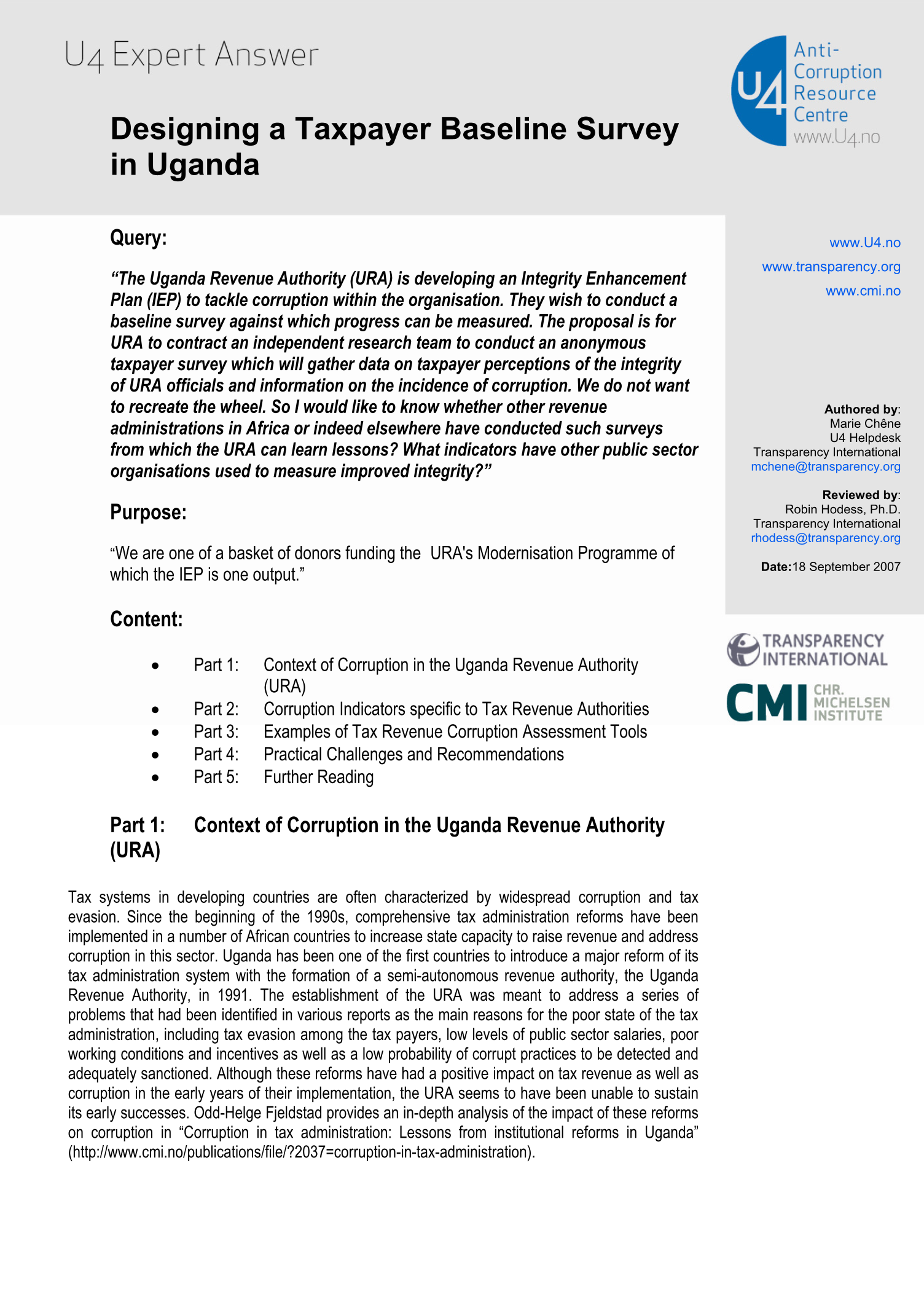U4 Helpdesk Answer
Designing a taxpayer baseline survey in Uganda
Surveys indicate that corruption is on the rise in the Uganda Revenue Authority (URA), with incidences of political interference, patronage and corruption at managerial level. Corruption can occur at all stages of the tax administration processes, in the identification of tax liabilities, the registration or removal of taxpayers, the assessment of collection of tax dues, the monitoring of incoming payments as well as in the investigations and prosecutions by the tax authorities for suspected tax offences, with an impact on the country revenue trends. Although not directly assessing the prevalence of corruption within the tax administration, a variety of indicators can suggest that corruption is taking place as well as help identify vulnerability areas. These include the complexity of tax laws and procedures, the large numbers of exemptions or special rules, the monopoly and discretionary power of tax officials and the frequency of contacts between tax payers and tax officials. In

Cite this publication
Chêne, M.; (2007) Designing a taxpayer baseline survey in Uganda. Bergen: U4 Anti-Corruption Resource Centre, Chr. Michelsen Institute (U4 Helpdesk Answer Helpdesk 2007)
Disclaimer
All views in this text are the author(s)’, and may differ from the U4 partner agencies’ policies.
This work is licenced under a Creative Commons Attribution-NonCommercial-NoDerivatives 4.0 International licence (CC BY-NC-ND 4.0)